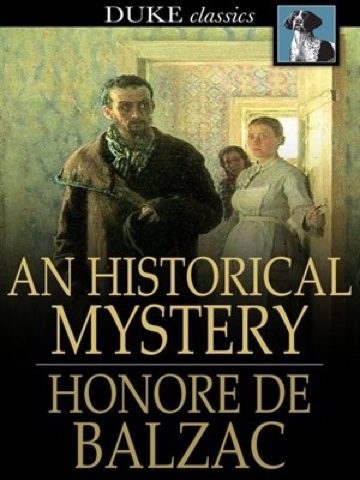Honore de Balzac on The Reading Life
Paris in July - Year Ten - Hosted by Thyme for Tea
So far as my participation in Paris In July Year Ten I have read
1. Colette- Two Early Short Stories
2. The Black Notebook by Patrick Modiano
3. "A Duel" by Guy de Maupassant ( A Franco-Prussian War Story)
4. Life, Death, and Betrayal at The Hotel Ritz in Paris by Tilar Mazzeo (non fiction)
5. How the French Invented Love by Marilyn Yolem (literary history)
6. "The Lost Child" by Francois Coppée
7. "The Juggler of Norte Dame" by Anatole France- no post
8. A Very French Christmas- A Collection of the Greatest Holiday Stories of France
9. "The Illustrious Gaudissart" by Honore de Balzac
There are 91 components to Balzac's La Comedie Humaine. I have seen numerous
Statements by academics concerning the make up of the cycle saying it is 91 full volumes. Here is the breakdown
45 Novels
25 short stories
21 Novellas.
Many book bloggers could finish this in under three months. I have been reading on and off for a while now.
I have now read 80 of 91 works
I think the errors come from not looking at the full work, available and as practical matter, only really readable in an E book. I am employing the Delphi Edition, it is not perfect but it is ok. It is only $2.51. My biggest complaint is that it does not have a chronological index. The translations are older public domain works.
Honore de Balzac is the greatest chronicler of Paris, a towering figure in world literature. His literary output, fired by a legendary fifty cups of coffee a day, is gargantuan. He wrote five or six works considered among the world's greatest novels, some wonderful short works and some only one determined to read through his grand cycle of France, The Comedie Humaine, would wish to read. I am currently nearing completion of this project and I urge it on all serious literary autodidacts as well as those into French history and culture.
"The Illustrious Gaudissart" is a competent of La Comedie Humaine, part of the Parisians in Paris section. It really is a delightful work, pure top of his form Balzac. The story begins with a description of the importance of the traveling salesman in France in the 1830s. It was through these men that the products of Paris spread throughout the provinces. Balzac is the master of description and Gaudissart perfectly fits the role of the glib talking can size up anyone from a back country farmer to a wealthy businessman at one look salesman who knows how to sell them anything. This is just done perfectly. Balzac always has small touches to bring humanity to his characters. It was so much fun to read about him and his mistress who totally has him under her lovely Parisian thumb.
Because of his extreme success he comes to the attention of wealthy owners of insurance companies and newspapers who want him to sell subscriptions. His girl friend knows how many subscriptions he has to sell to keep her happy. Of course he is married.
We follow him to a rural town. Something really funny, I mean hilarious happens. I loved it and I think you will also. I really want to leave it unspoiled. I think you can find this online.
Mel u
The Reading Life
Rereadinglives.blogspot.com






















